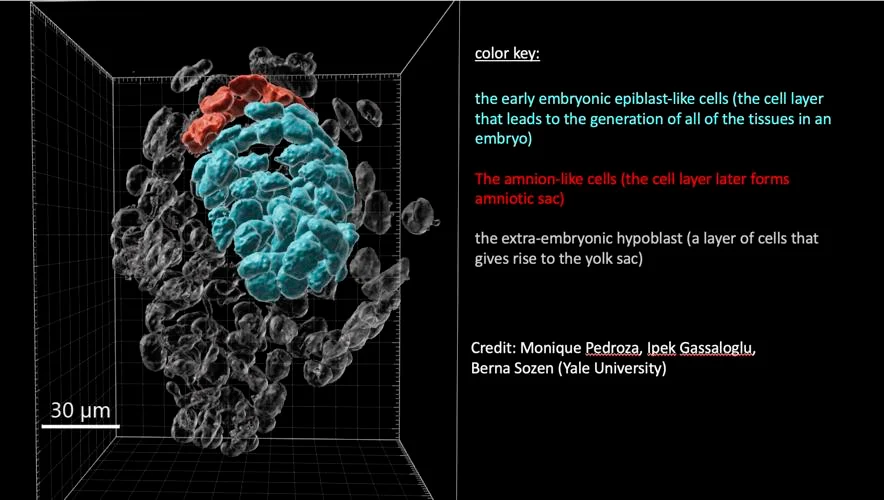By: Qinwei Wu
A team at the Weizmann Institute of Science in Israel have successfully created embryo-like forms with human stem cells.
Dr Jacob Hanna, who leads the team of scientists at the Weizmann Institute of Science, is trying to create models of human embryos in the lab. The scientists have been encouraging human stem cells to organize into a form very similar to a human embryo.
Dr Hanna’s team and other teams such as those in the United States, China, and Britain have all released reports on their experiments last month.
Dr. Tianqing Li, a developmental biologist at Kunming University of Science and Technology in China, hopes that their embryo models could help produce new treatment for infertility and even diseases like cancer.
Recently, scientists have used an easier way to study embryos than in the past—making models of them in the lab. Researchers have understood that all cells in early embryos could turn into a variety of tissues.
Since knowing that information, scientists have used many different methods to take advantage of it. Once a human embryo implants itself in the uterus, different cells would go on to do their own jobs and send signals to each other, which is crucial for a human embryo’s development.
Insoo Hyun, a member of the Harvard Medical School Center for Bioethic, highlighted that, “Once you get the embryo models in place and you can rely on them, that can be an interesting way to screen drugs that women take when they’re pregnant.”
The scientists will then copy some of these different cell’s actions, then mixing them together, creating a embryo-like organism.
Researchers saw these as a huge accomplishments. However, they still thought if they could be able to create a very close model of embryos, they would be able to do much more, such as test potential causes of pregnancy failures, and other medical discoveries.
Insoo Hyun, a member of the Harvard Medical School Center for Bioethic, highlighted that, “Once you get the embryo models in place and you can rely on them, that can be an interesting way to screen drugs that women take when they’re pregnant.”
Alysson Muotri, a developmental biologist at the University of California San Diego who was not a part of these experiments, commented, “The work is in very early stages, and the current methods are far from reliable.”











